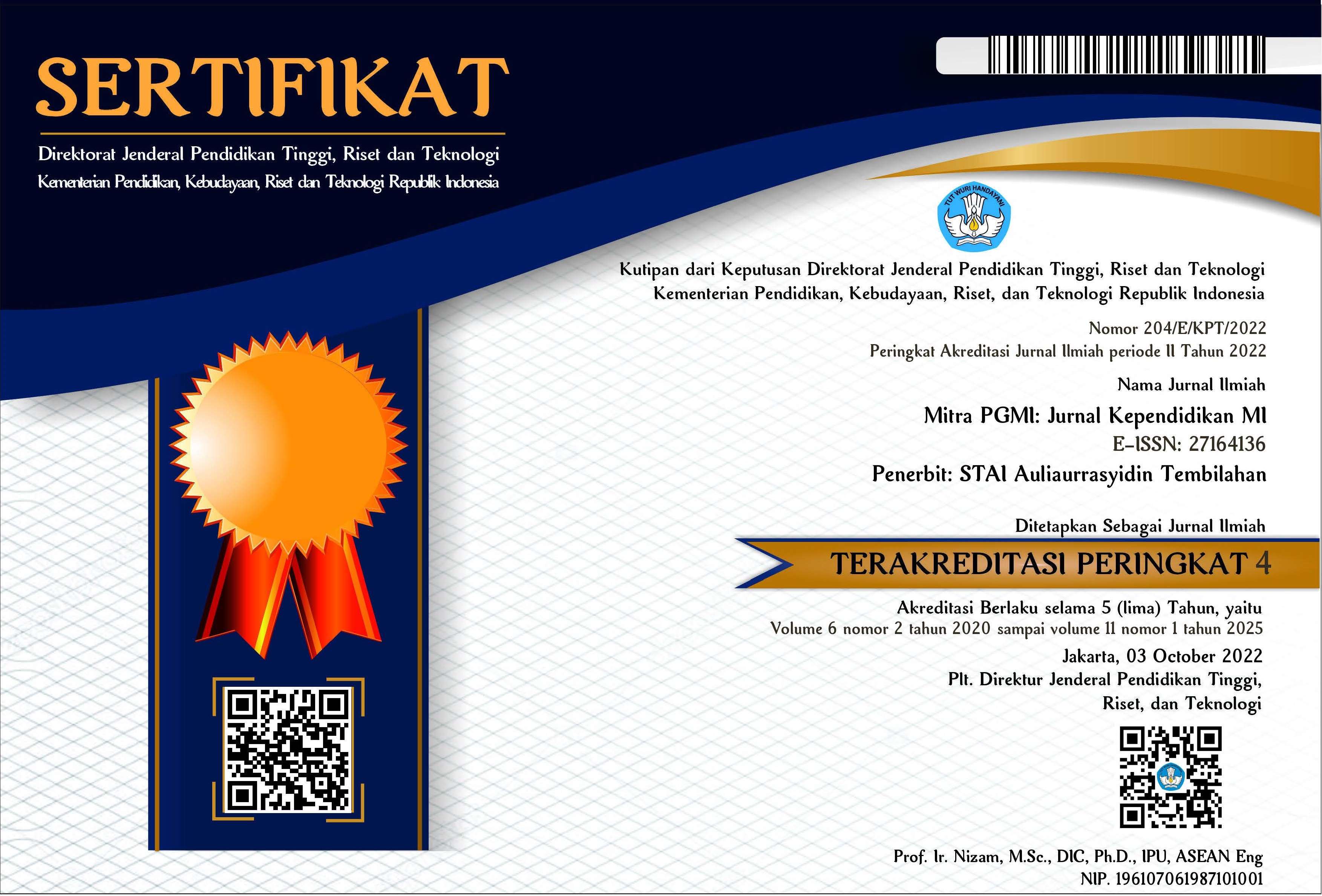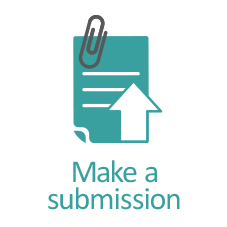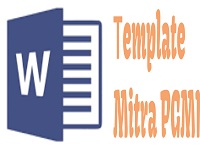Peningkatan Hasil Belajar Siswa Menggunakan Strategi Pembelajaran Berbasis Multiple Intelligence (Kecerdasan Majemuk) pada Mata Pelajaran Tematik Sekolah Dasar
DOI:
https://doi.org/10.46963/mpgmi.v9i1.518Keywords:
Multiple Intelligence, Learning OutcomesAbstract
As a teacher, you are constantly required to master the following things, understand and formulate learning objectives, understand the learning process, understand how to deliver lessons to students, be able to choose learning aids and media, be able to understand and provide services to individual differences of students, able to provide guidance to students, able to compile and use evaluation tools Each student has differences between individuals with one another. So on the basis of understanding the condition of students, the application of learning strategies must be able to provide opportunities for students to develop the potential that exists within themselves. The teacher as an educator who plays a role in the ongoing learning process has a responsibility in determining learning strategies. This research was conducted at SD Negeri 023 Belantaraya with 15 students. This type of research is classroom action research. After learning by using learning strategies based on multiple intelligences in cycle 1 and cycle 2, student learning outcomes have increased with the following results the completeness of student learning outcomes is 46.67% of students complete and 53.33% not complete then there is an increase in students who complete in student learning outcomes after applying multiple intelligence-based strategies with 93.33% of students completing learning and 6.67% of students not being complete in learning outcomes.
Downloads
References
Aqib, Z. (2009). Menjadi Guru Profesional Berstandar Nasional. Bandung: Yrama Widya.
Baharuddin, & Wahyuni, E. N. (2017). Teori Belajar dan Pembelajaran. Yogyakarta: Aruzz Media.
Chatib, M. (2016). Sekolahnya Manusia Sekolahnya Berbasis Multiple integences. Bandung: Kaifa.
Gardner, H. (2017). Multiple Intelegences. Batam: INteraksa.
Hamalik, O. (2009). Kurikulum dan Pembelajaran. Jakarta: Bumi Aksara.
Iskandarwassid, & Sunandar, D. (2017). Strategi Pembelajaran Bahasa. Bandung: Remaja Rosdakarya.
Kunandar. (2017). Langkah Muda Penelitian Tindakan Kelas: Sebagai Pengembangan Profesi Guru . Jakarta: Rajawali Press.
Legowo, E. (2017). Model Pembelajaran Berbasis Penstimulasian Multiple Intelegences Siswa. Jurnal Kajian BImbingan dan Konseling, 2.
Sudijono, A. (2015). Pengantar Statdtik Pendidikan. Jakarta: PT Raja Grafindo Persada.
Sugiyono. (2011). Metode Peneltian, Kuantitatif, Kualitatif dan R& D. Bandung: Alfabeta.
Taniredja, T. (2010). Penelitian Tindakan Kelas. Bandung: Alfabeta.
Yaumi, M., & Ibrahim, a. (2017). Pembelajaran Berbasis Kecerdasan . Jakarta: Kencana Prenada Media Group.
Downloads
Published
Issue
Section
License
Copyright (c) 2023 Hasan Fauzi, Yusnita Yusnita, Wahyu Sugito, Yurnalis Yurnalis, Sigit Santoso

This work is licensed under a Creative Commons Attribution-ShareAlike 4.0 International License.
Authors who publish with this journal agree to the following terms:
1. Copyright on any article is retained by the author(s).
2. The author grants the journal, right of first publication with the work simultaneously licensed under a Creative Commons Attribution shareAlike 4.0 International License that allows others to share the work with an acknowledgment of the work’s authorship and initial publication in this journal.
3. Authors are able to enter into separate, additional contractual arrangements for the non-exclusive distribution of the journal’s published version of the work (e.g., post it to an institutional repository or publish it in a book), with an acknowledgment of its initial publication in this journal.
4. Authors are permitted and encouraged to post their work online (e.g., in institutional repositories or on their website) prior to and during the submission process, as it can lead to productive exchanges, as well as earlier and greater citation of published work.
5. The article and any associated published material is distributed under the Creative Commons Attribution-ShareAlike 4.0 International License








2.png)


